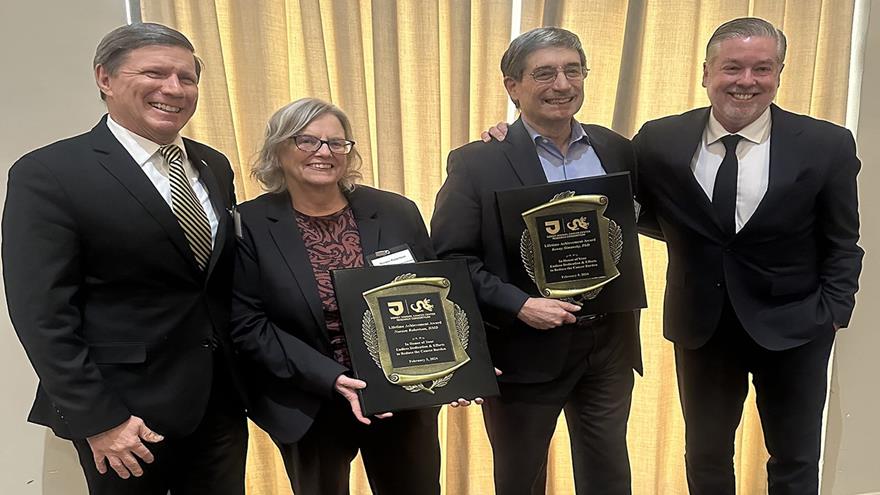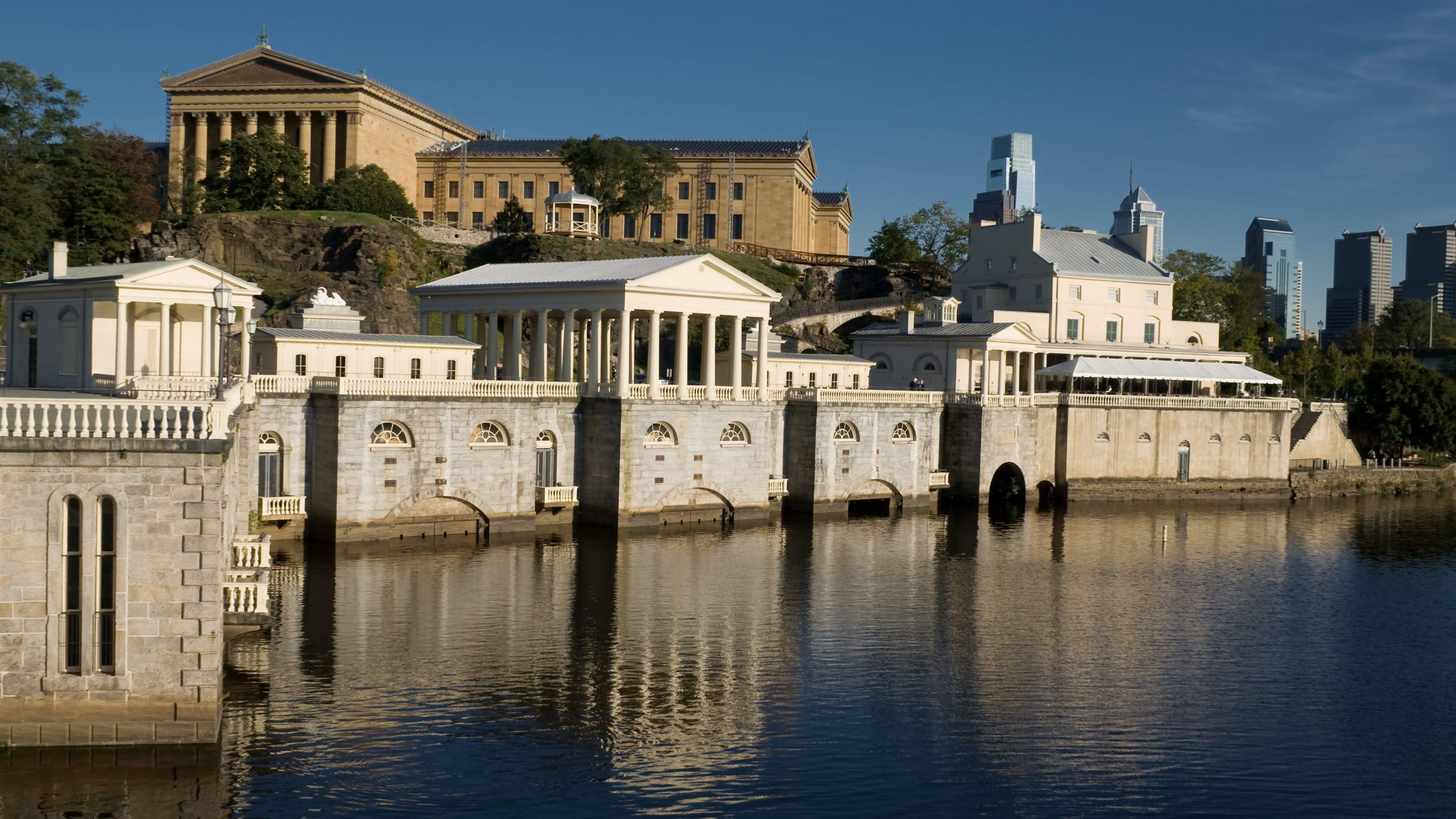Drexel-Led Consortium Releases Research Strategy for Building Philadelphia Region’s Climate Resilience


Over the next 20 years the Philadelphia region will experience more heat waves and frequent extreme precipitation events, according to the most recent projections and analysis by the Consortium for Climate Risk in the Urban Northeast (CCRUN). In hopes of preparing the city for these changes, Drexel University, the Delaware Valley Regional Planning Commission, the Academy of Natural Sciences, and CCRUN convened more than 100 researchers, community members and stakeholders to produce a research agenda that, if pursued, could help to fortify Philadelphia, and its most vulnerable populations, against the extreme effects of climate change.
The group unveiled its Climate Resilience Research Agenda for the Philadelphia Region at the annual Green Building United Sustainability Symposium hosted at Drexel on May 24. Developed over the last two years in working groups consisting of regional practitioners, representatives of the non-profit sector and university researchers, the plan focused on four key areas:
· Health and environmental vulnerability
· The built environment and infrastructure systems
· Regional climate governance and adaptive management
“This agenda represents the first step in an evolving public discussion that must widen and deepen if we are to reduce our region’s vulnerability to climate change,” said Franco Montalto, PhD, a professor in Drexel’s College of Engineering, one of CCRUN’s principal investigators, and an organizer of the regional convening. “Though the specific research activities they put forth differ, all four working groups emphasized the need to better understand the unique ways that climate change will be experienced in different communities – especially the most vulnerable communities- and the importance of incorporating local knowledge in resilience decisions.”
The research agenda begins by presenting projections describing how the climate of the Philadelphia region is likely to change in the decades ahead. The region is expected to become both hotter and wetter, and extreme weather is projected to increase both in frequency and severity.
“It’s important to begin taking steps now to plan for more rain and more extreme storm surges,” said Daniel Bader, program manager for CCRUN and Columbia University’s Center for Climate Systems Research, who was a co-leader of the Cascading Climate Hazards working group. Bader noted that the region is already experiencing extreme weather, including recent impacts from heat waves, tidal flooding, tropical cyclones, tornadoes and winter storms.
“Tropical Storm Isaias gave us a glimpse at the future challenges our most vulnerable communities will face as sea level rises and flooding events become more frequent,” said Chris Linn, manager of the Office of Climate and Environment at the Delaware Valley Regional Planning Commission, who was a member of the planning team for the agenda. “Without focused attention, climate change will exacerbate existing inequities, making environmental injustices more pronounced.”
The group suggests that preparation for the effects of more extreme weather events and sea level rise should include looking at how buildings and impermeable infrastructure contribute to flooding and how green infrastructure could help to mitigate it; how the infiltration of salt water into the Delaware river, combined with more chemicals flushed into it via runoff, could affect drinking water; and how the river ecosystem will be impacted by climate change; among a range of other topics.
CCRUN’s data projects that for the Philadelphia region, warming temperatures may cause an increase in hot days, with between 56 and 72 days per year exceeding 90 degrees Fahrenheit by the 2050s, up from the current average of 27 days per year.
“We are already experiencing more heat waves each summer, the impact of which is amplified in vulnerable communities throughout the city due to persistent underinvestment in simple solutions like planting and maintaining trees,” said Katera Moore, PhD, environmental justice coordinator for the Delaware Department of Natural Resources and Environmental Control, who was a co-leader of the Health and Environmental Vulnerability working group. “As a result, community groups have had to turn to temporary measures such as fan giveaways and cooling facilities where residents can take refuge from the heat. These stopgaps are inadequate, green infrastructure needs to be more equitably distributed throughout the city. More importantly, we need to engage with communities so we can better understand what we should be doing as a long-term solution.”
The research agenda lists a number of recommendations for researching the surrounding effects of rising temperatures, ranging from public health considerations, such as how air quality will change with rising temperatures and how the new climate could increase the spread of allergens and diseases; to concerns about the built environment, such as how increased heat and humidity will degrade buildings and building materials more quickly; and how extreme heat may limit access to transportation and buildings, such as schools, that are not able to safely operate in these conditions.
“One of the main takeaways from this report is that we need to make sure we are asking the right questions if we want to address this unprecedented challenge,” Montalto said. “This report lays out a very preliminary path, but we need to get many more people involved.”
Underpinning each tranche of recommendations are questions about the best ways to implement the findings of these urgent research endeavors. These include policy suggestions, like folding the projects into ongoing infrastructure improvements or increasing funding for existing efforts to increase green space in the city; as well as a push for engaging communities in participatory research so that citizens can have more agency in determining solutions to climate impacts.
“Any future research must be participatory, referencing not just climate data and technical analyses, but the lived experience of those who stand to be most impacted,” said Kermit O, a co-leader of the Cascading Hazards working group. "We need to tap into the wisdom of these same communities and build on the work they're already doing."
The full research agenda is available here: https://drexel.edu/sustainability/academic-research/research-centers/CRRA-Report/
For additional resources and information about efforts to improve Philadelphia’s climate resilience, visit: https://www.phila.gov/departments/office-of-sustainability/
Drexel News is produced by
University Marketing and Communications.